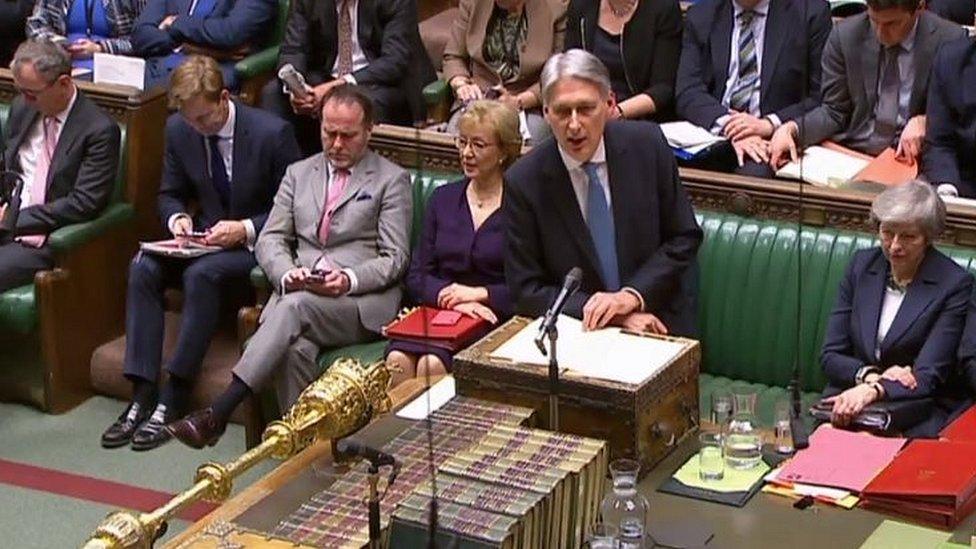Brexit: Is the chancellor telling Theresa May to change course?
- Published

I know the idea that cabinet ministers stick to a script is deeply old fashioned.
But for a chancellor to stand right in front of a prime minister and, even obliquely, tell them to change course, as Chancellor Philip Hammond has just done in his Spring Statement, is quite something.
Mr Hammond's remarks might, in fact, be a step towards so-called indicative votes in the Commons, where a range of potential plans are presented to MPs - and maybe soon.
Some ministers have argued privately for that for some time, although it's been frowned on by Number 10.
His remarks may delight some of his colleagues, who believe "reasonable Remainer" MPs have been locked out of the process for too long.
Mr Hammond's team are already insisting there is no difference between him and Number 10.
But for weeks a debate has raged at Westminster about what to do if the prime minister's deal can't get through the House of Commons.
And for weeks it's been clear that there is a contingent in cabinet who think the solution to the gridlock is to move to a closer Brexit relationship with the EU, a compromise that could get a wider form of cross-party consensus.
That has not, though, been Number 10's view.
The prime minister has been trying to hold on to her negotiated deal, whatever happens, and to resist - at almost all costs - softening up her Brexit offer in any way, scrubbing out any more of her red lines.
Because, while it is easy to say - and sounds eminently reasonable - to call for compromise, there's a huge political risk.
The PM could compromise to get a hypothetical softer Brexit through the Commons - but days later find out that she could no longer govern.
In this febrile atmosphere when the chancellor makes a call, as he has just done, for a "consensus" across Parliament to find a way out of this hole, he is also hinting very publicly to the prime minister that it might be time now to think about making that sacrifice.
It's important to remember that Mr Hammond's preferred option all along has been to back the prime minister's deal, to try to get it through.
But a mild-sounding call for compromise just now, is not necessarily politically mild at all.